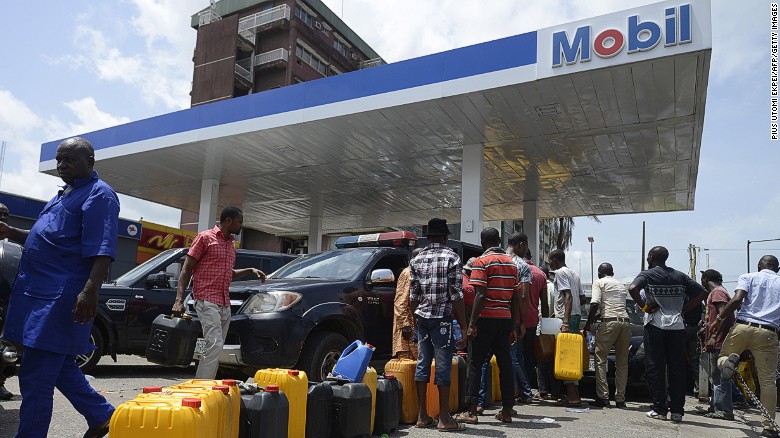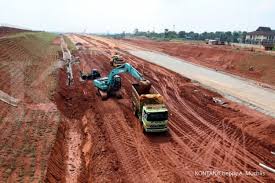
Gasoline crisis in Nigeria
Nigeria, Venezuela and Indonesia are well known rich of energy. The first two countries were OPEC member and Indonesia was a former OPEC member too, but due to rapid grow of population no longer export, Indonesia became import country, then out of the organization. (OPEC is Oil Petroleum Export Countries).
Nigeria is an oil-producing nation but has to import fuel because it doesn't have the capacity to refine enough of its own fuel to serve the population with the price subsidized. Oil only accounts for about 15 percent of the GDP of
Africa's biggest economy, but it makes up 75-80 percent of government
revenues.
The companies that import fuel say they haven't been paid by the Nigerian government, so they held back their massive supplies, which sit warehoused and untapped at Lagos' expansive seaport.
Recently oil crisis happened in Nigeria, cars lined up, people carry jarry can line up too. Airports closed, plane cancelled, Bank and many buildings used own generators, mobile phones dead without electric charges.This is one of the reasons why it is becoming increasingly expensive to pay for the subsidy. By 2010, subsidy amount $4.2 billion.
 Trans Sumatra toll road construction, Indonesia
Trans Sumatra toll road construction, Indonesia
In the other hand, Indonesia under new President Jokowidodo, without significant outcry from the public, unsubsidized oil price, let the price follow the World price. Recently, May 2015 oil price rocketed high $ 0,68 or Rp 8.800 a liter (unsubsidized). While in Nigeria $ 0,90 ($ 0,50 subsidized). Billion of $ budget in Indonesia for oil subsidy who used for consumptive, miss used, now switched to productive programs like infrastructures, sea ports, railways, water dams, agriculture etc

Inflation in Venezuela 2014
Gasoline is so heavily subsidized in Venezuela that one US cent buys about five gallons ($ 0,06 or Rp 728 a liter), costing the government as much as $ 12 billion annually and spurring a lucrative business in smuggling fuel across the border to neighboring Colombia.
The companies that import fuel say they haven't been paid by the Nigerian government, so they held back their massive supplies, which sit warehoused and untapped at Lagos' expansive seaport.
Recently oil crisis happened in Nigeria, cars lined up, people carry jarry can line up too. Airports closed, plane cancelled, Bank and many buildings used own generators, mobile phones dead without electric charges.This is one of the reasons why it is becoming increasingly expensive to pay for the subsidy. By 2010, subsidy amount $4.2 billion.
In the other hand, Indonesia under new President Jokowidodo, without significant outcry from the public, unsubsidized oil price, let the price follow the World price. Recently, May 2015 oil price rocketed high $ 0,68 or Rp 8.800 a liter (unsubsidized). While in Nigeria $ 0,90 ($ 0,50 subsidized). Billion of $ budget in Indonesia for oil subsidy who used for consumptive, miss used, now switched to productive programs like infrastructures, sea ports, railways, water dams, agriculture etc
Inflation in Venezuela 2014
Gasoline is so heavily subsidized in Venezuela that one US cent buys about five gallons ($ 0,06 or Rp 728 a liter), costing the government as much as $ 12 billion annually and spurring a lucrative business in smuggling fuel across the border to neighboring Colombia.
No comments:
Post a Comment